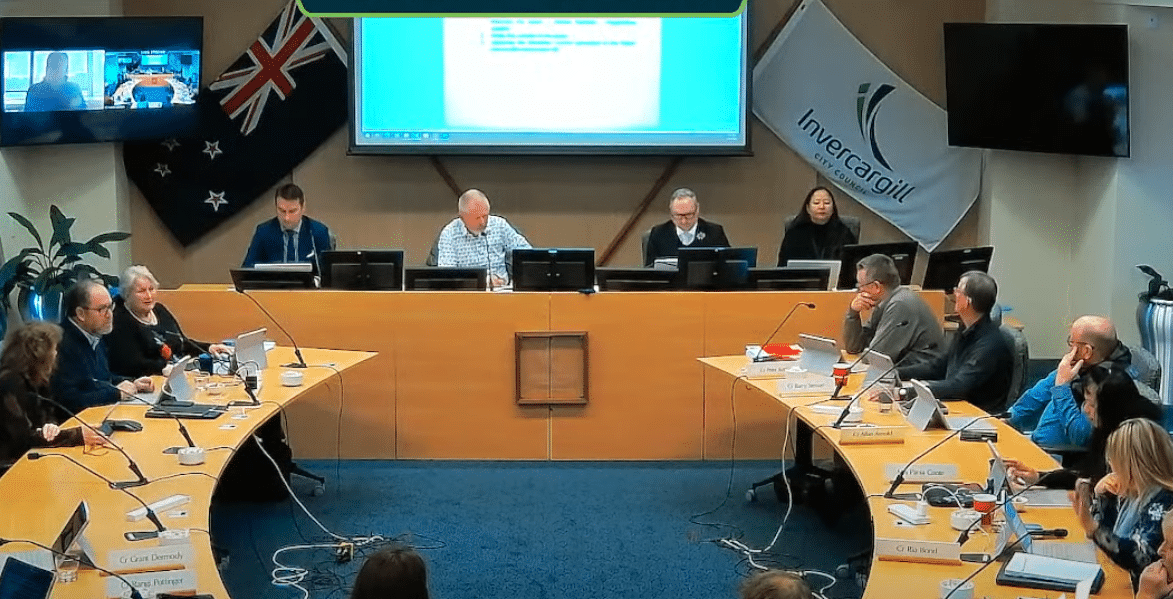Water rates in Invercargill could increase from $1850 a year to $4439 under the proposed Affordable Water Reforms (formerly called 3 Waters).
Mayor Nobby Clark spoke strongly against the submission at the Select Committee hearing this morning, along with council’s chief executive Michael Day. Related: Watch: Council Goes Against DIA And Discusses 3 Waters Report Publicly
In the submission Clark outlined the fact that Invercargill ratepayers would have to cross subsidise other councils in the new water entities group – that includes Queenstown Lakes and Dunedin City.
But Invercargill only has $14.9 million worth of debt when the smaller Queenstown Lakes District has a whopping $160 million and Dunedin $140 million.
“So we’ll end up bearing half of their debt.”
The ICC was also loathe to then have to collect those increased water services charges on behalf of the new water services entity.
“We oppose being compelled to collect revenue for a service we no longer control and deliver, partly because it will exacerbate public confusion about who is accountable for water services particularly in an environment where the community are facing significantly higher costs.”
The move from four to 10 new entities was proposed by the Department of Internal Affairs on Monday, and council’s submission said it was evident that ratepayers under the reform will pay significantly more in combined rates and water charges.
“Making more entities is just watering it down,” Mayor Clark said. “We’ve lost our ability to manage our freshwater assets and in a collective way.”
Despite Council’s opposition to the overall approach of the reform and the recommendation that the reform be redesigned, it was evident that the Government intended to proceed, the submission from ICC said.
As well as additional water services charges for every Invercargill household, ICC’s forecasting revealed an additional estimated investment of $197 million across 30 years, to be able to meet higher environmental standards.
Mayor Clark said he was also surprised there has been no talk about water meters, making a user-pays systems like in Central Otago, but he believes it will come.


